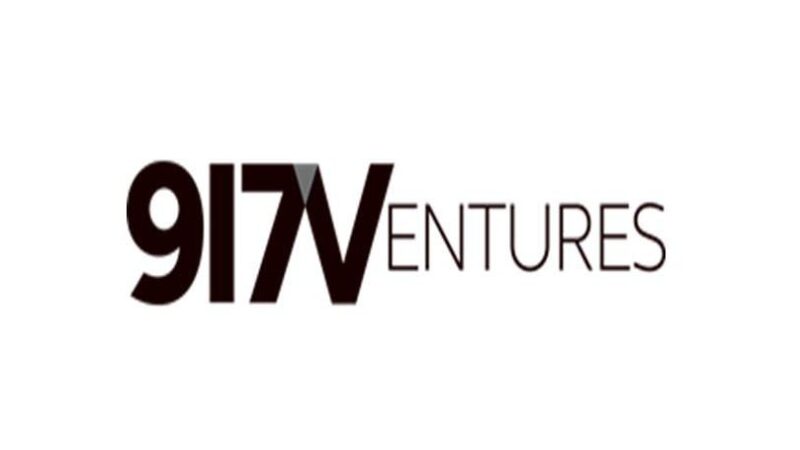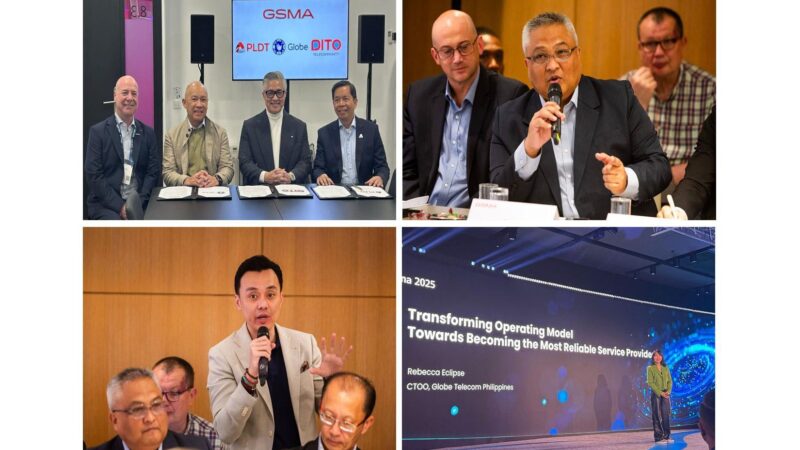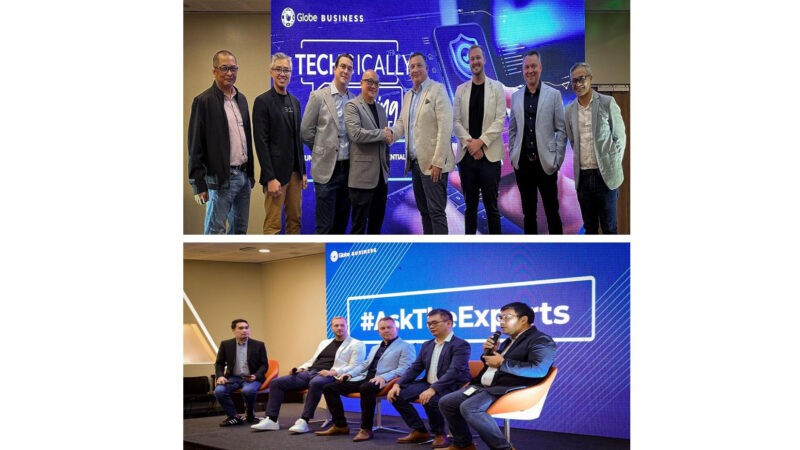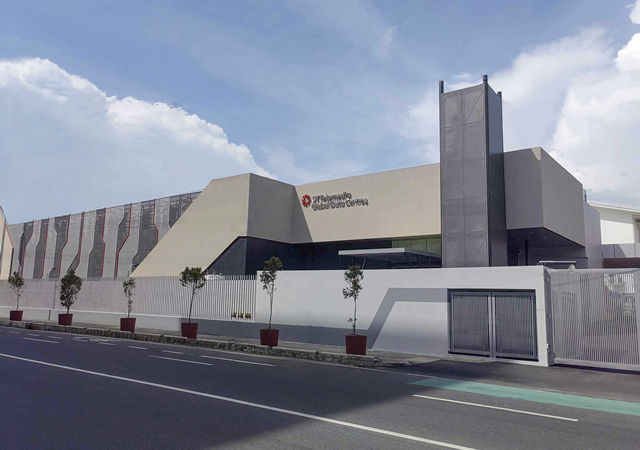FACTS AND FIGURES: AYALA’S PERFORMANCE IN 2020 & 2021 PRIORITIES
For the full-year 2020, Ayala Corporation reported a net income of P17 billion, 51 percent lower than the previous year. Much of this decline is attributed to non-recurring items, such as provisions booked by various businesses, an accounting reclassification, and the non-recurrence of divestment gains from its power and education units. Excluding such, the year-on-year contraction in Ayala’s net profits was at 16 percent. For 2021, the Ayala Group has allocated a combined capex of P196 billion to support the continued expansion of its core businesses and fund emerging opportunities in the healthcare and logistics sector.
In 2020, Ayala Land pioneered the country’s first real estate investment trust called AREIT, which raised P12.3 billion in proceeds and encouraged other property developers to launch their own REIT vehicles. For 2021, ALI has programmed P88 billion in capital expenditures. It is prepared to launch P100 billion worth of residential projects as it gears for recovery in the next two to three years.
BPI’s substantial investments in digital transformation, over the last 3 years, enabled the bank to meet the changing, alternative banking needs of its customers; and become a leading digital bank. BPI’s mobile app was the most downloaded banking app during the pandemic. Fifty-two percent of the bank’s customers are now digitally enabled; more than half of them are active users; and an average of 70 percent of total transactions are now done online.
In 2020, Globe Telecom invested P60 billion in capital expenditure, 18 percent higher than in 2019. Globe built nearly 1,300 new cell sites, upgraded more than 11,500 sites to 4G/LTE technology, and deployed 5G sites in various cities and provinces. For 2021, Globe earmarked a record P70 billion in capital spending to support the shift in demand from mobile to home broadband.
Mynt’s GCash is now the number one finance app in the country, serving over 33 million users or one in every three Filipinos. With the exponential growth of GCash in 2020, not only has it topped the Finance App Category when it comes to active users, but it has also gone ahead of global social media and entertainment apps like Tiktok, Twitter, Netflix, Grab, Spotify, and Viber, based on App Annie, a reputable global app ranking authority. Last year, the value of transactions that passed through GCash crossed P1 trillion, which was double that of the combined totals for the three-year period of 2017 to 2019. GCash recently attracted USD175 million in fresh capital, including an investment from Bow Wave, a New York-based private equity fund. With a post-money valuation of nearly USD1 billion, this investment validates GCash as a formidable player in contributing to and transforming financial services in the country.
AC Energy has set a bold goal to build five gigawatts of renewable energy by 2025 and become one of the largest listed renewables platforms in Southeast Asia. In 2020, AC Energy continued its aggressive geographical expansion, and now currently operates in five markets—the Philippines, Vietnam, India, Indonesia, and Australia. It is transitioning to a low carbon portfolio and is committed to divest all its coal assets by 2030.
In 2020, IMI’s subsidiary, VIA Optronics, a leading supplier of enhanced display solutions, was listed on the New York Stock Exchange. VIA’s IPO resulted in proceeds of USD94 million, and a valuation that implied a 34 percent gain from its acquisition price. Meanwhile, IMI’s parent AC Industrials narrowed its losses to P1.8 billion in 2020, despite manufacturing disruptions during the year. It also posted a net profit in the fourth quarter after restoring plant operations to full capacity, improving factory efficiency, and optimizing margins from contract negotiations. AC Industrials’ array of disruptive technology is poised to ride on emerging megatrends around autonomous vehicles, more electronic components in automobiles, and green energy.
In 2020, Manila Water continued to deliver the necessary infrastructure towards the fulfillment of its service obligations, spending P12.1 billion in capital expenditures—81 percent was channeled to the East Zone Concession to carry out various projects on wastewater expansion, network reliability, and water supply. The entry of Trident Water of the Razon group to Manila Water will enable the regulated company to seek expansion opportunities locally and internationally.
Leveraging its nationwide reach, AC Infrastructure’s Entrego has gained a foothold serving major e-commerce players in the country. Over the past year, its revenues grew 10 times since 2018 and volume of packages delivered doubling since the start of the pandemic. It aims to expand its presence across the broader logistics supply chain, including contract logistics and freight forwarding.
AC Health is scaling up its portfolio to take advantage of the momentum in the healthcare ecosystem. It completed the acquisition of a majority stake in QualiMed Health Network last February, complementing AC Health’s 85 outpatient clinics and 80 corporate clinics under the Healthway brand, as well as the country’s first specialty cancer hospital, which is set to open in 2023. Its telemedicine brand, HealthNow, proves to be a great alternative medical consultation solution, alongside online purchasing of medicines and scheduling of onsite clinic appointments. Currently, HealthNow is the most downloaded medical app on App Store.
In 2020, the Ayala Group spent a total of P13.2 billion in various initiatives to help employees, partners, customers, the broader community and the country cope with the impact of the COVID–19 pandemic.
When the government implemented ECQ in March 2020, Ayala’s first response was to protect employees and help assure their peace of mind, financially and physically/medically. An emergency assistance package, which consisted of a mix of wages, leave conversions, loan deferments, and advance release of employee bonuses, was rolled out so employees feel financially secure. Contract workers who would have been on a “no-work, no-pay” dilemma (including personnel, maintenance staff, and construction workers) also received financial assistance from the Ayala group. Consistent with DOH mandate, strict health protocols were implemented to ensure the safety of essential workers who had to be physically present at work. Shuttle services, sleeping quarters, and regular testing were made available as well.
In 2020, Ayala sought to also protect its extended business community. Aside from offering loan payment extensions, waivers of fees and interest charges and rent reprieves to our partners and mall tenants, the Ayala group also launched the Ayala Enterprise Circle as a platform to engage, upskill, connect and empower the over 250,000 SMEs who are either clients or partners of Ayala.
For the broader Filipino community, Ayala worked with the Philippine Disaster Resilience Foundation and Caritas Manila on Project Ugnayan, where over 270 private entities convened to raise P1.7 billion worth of food vouchers for over 14 million of the most economically vulnerable individuals in the Greater Manila Area. Ayala also actively contributed towards capacitating the national and local government’s response to the pandemic. Through Task Force T3, Ayala converted the World Trade Center into a 502- bed isolation facility. It donated the swabbing booths for the national government’s four mega swabbing centers, and it also converted two QualiMed hospitals into COVID referral centers, complete with appropriate testing and critical care facilities, including ventilators. Together with the City of Manila, Ayala constructed a new molecular laboratory inside Sta. Ana Hospital. We also donated PCR machines and medical supplies to Quezon City and Davao City.
Ayala’s participation in T3 now encompasses support for the national government’s vaccine implementation roadmap – including strategy, procurement, administration, and communications. With the IATF, DOH, and the ICTSI Group, Ayala helped consolidate and finalize the private sector component of the tripartite agreement for the purchase of Moderna vaccines. Together with the 450,000 vaccines ordered from AstraZeneca, Ayala has procured 1 million doses, inclusive of our donation to the government.
“We entered this pandemic with a strong balance sheet; and we navigated this unpredictably long, deep and complicated crisis with the strength of our balance sheet intact,” Fernando Zobel de Ayala noted. “This strength has allowed Ayala to sustain operations and service debt; and to provide generous support to our varied stakeholders at a time of crisis. It also gives us the continued capacity and flexibility to pursue potential opportunities.” #







